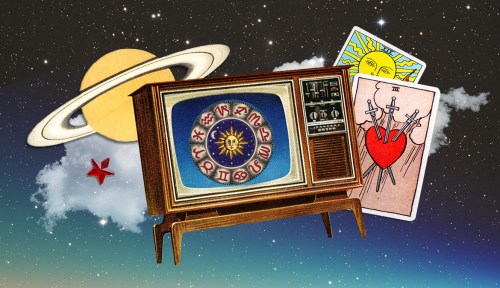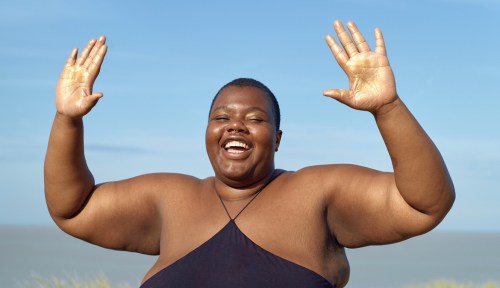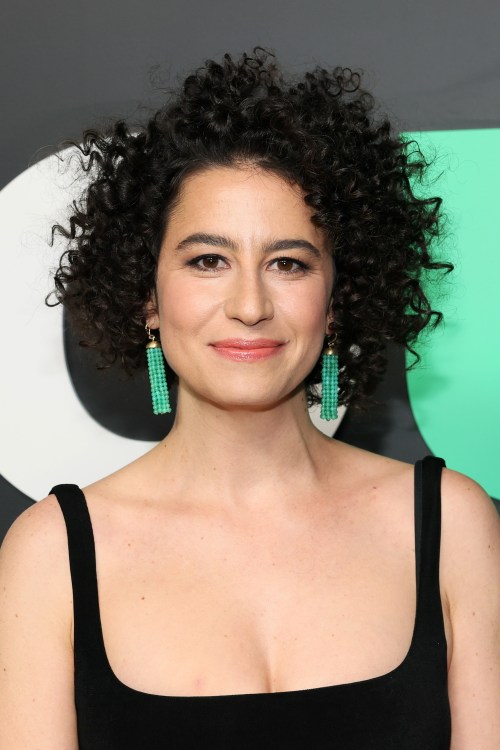For the past few years, mainstream society has been steadily moving toward a culture of sexual acceptance and pleasure celebration. While it’s great that wanting and having sex is becoming increasingly normalized, somewhere along the line, the idea of not wanting sex, by contrast, started to become increasingly pathologized, too—which is not so great. In reality, both conditions can be true: People can naturally desire sex, and people can naturally have no interest in it. And equating sex with an instinctual “drive” doesn’t accurately capture that range.
Experts in This Article
To say that sex is not a drive, again, does not mean that people don’t naturally crave having it—because many of them do (more on how that works below). It just means that sex is not a drive in the way that a drive connotes an inherent human need for something. “Physiologically, drives are reserved for survival-related activities such as the need for oxygen, food, and water,” says gynecologist and sexual-medicine specialist Christie Cobb, MD. And we all know, you won’t die without sex, however much you might want it.
“Physiologically, drives are reserved for survival-related activities such as the need for oxygen, food, and water.” —Christie Cobb, MD, gynecologist and sexual-medicine specialist
The strong degree of sexual yearning many people feel, though, may be the reason sex was first linked with the idea of a “drive”—back when sex was far more hush-hush than it is today, particularly outside the scope of marriage or for non-procreative reasons. “’Sex’ and ‘drive’ became associated in the late 1800s due to Sigmund Freud’s theory of infant sexuality, called ‘drive theory,’” says clinical psychologist and AASECT-certified sex therapist Lori Lawrenz, PsyD. Generally, his concept of the development of libido (his term from a Latin word for desire and lust) included the idea of being driven to have sex, she says.
It is true that people are driven to have sex, in a colloquial sense, which is perhaps why the idea of a “sex drive” has become so popular in the zeitgeist. But, it’s crucial to clarify what someone means when they are talking of their sex drive, says Dr. Lawrenz. “Are they driven to have sex like they are driven to succeed at work?” she says. Because, in that case, drive might be an apt term.
Still, just as it’s normal for some folks to lack a drive to excel at work, it’s also normal for some people to not have a “drive” for sex, which is why sexual “desire” is often a more accurate term than sexual “drive.” “The desire for sex is a motivational system,” says Dr. Cobb, differentiating it from the physiological undertone of a “drive.” “With that motivation for sex often comes a reward, which reinforces the cycle.”
If sex is not a drive, then why are some people motivated to have it?
Sex can certainly be a natural desire, if not technically a drive. And generally, that occurs in two ways: spontaneous and responsive. The first is likely what you associate with libido or a sex “drive” that seems randomly (ahem, spontaneously) generated: It’s that feeling of horniness that makes you want to jump someone’s bones (or bring yourself to climax) for no apparent reason. Because libido has been widely depicted this way in pop culture, it’s easy to assume that this is the only “normal” way to experience sexual desire, and that there’s something wrong with you if you don’t typically or ever feel this random sexual fervor.
But in reality, the other type of desire—responsive desire—is not only just as valid, but also may be more common in folks with female sex organs. This refers to having a desire for sex in response to physical arousal or other motivations, like a yearning to be more intimate with a partner. And the simple fact that sexual desire is often only incited in this way, through external factors, is another key reason why sex is not inherently a drive.
Whereas “sex drive” also implies a constant motivating force, both spontaneous and responsive desire leave wiggle room for change over time—which is very common. Biological factors (like being pregnant, postpartum, or in perimenopause) can lead to fluctuations in sexual desire, as can cultural or societal norms around sex, the relationship you have with a sexual partner, and even lifestyle factors. Some such factors are known to lower libido, like feeling chronically stressed or being sleep-deprived, while others are known to raise libido, like exercising or masturbating regularly .
How the concept of a “sex drive” excludes people on the asexuality spectrum
Though a “drive” isn’t quite an accurate term to describe how and why people get turned on in the first place, it also implies that humans need to have sex, in the way that they need food or water. Not only is this inaccurate, but also, it erases the existence of a category of people who do not often or ever want sex (much less need it).
“People who do not experience much if any sexual attraction may identify as asexual,” says Dr. Cobb. But, this doesn’t preclude these same people from having an interest in romance or intimacy. “Plenty of asexual people are in healthy committed relationships, but their attraction is just not sex-based,” she adds.
“There is nothing wrong with existing on the asexuality spectrum.” —Dr. Cobb
This identity is also not emblematic of an underlying sexual dysfunction, either, as the person who’s identifying as asexual does not experience any distress with regard to their lack of sexual desire. “An asexual person is accepting of their experience of being a person with minimal to no sexual desire,” says Dr. Lawrenz, “whereas someone with hypoactive sexual desire disorder, as characterized by the DSM-5, experiences it as a problem to not have the desire for sex.”
In the latter case, where a person is experiencing distress about the fact that they lack sexual desire, there are certainly treatment options, including sex therapy, psychotherapy, and medication, which can help rev up libido. But in the former case (of simply being on the asexuality spectrum), it’s important to remember that there’s no pathology in play and, in turn, no need to “treat” anything, says Dr. Cobb: “There is nothing wrong with existing on the asexuality spectrum.” And if that’s you, know that you’re not lacking some sort of natural human “drive.”
The only reason why asexuality seems to be such an “abnormal” or pathological identity is because it comprises a very small percentage of the population, says Dr. Cobb, “so most people are living with different sexual expectations [than those of asexual people].” Given that many allosexual folks (aka people who do experience sexual desire) equate sex with romance and intimacy, it’s important for asexual people to communicate their needs and boundaries with any romantic partner in order to ensure that their expectations for having—and not having—sex are known and respected.
Sign Up for Our Daily Newsletter
Get all the latest in wellness, trends, food, fitness, beauty, and more delivered right to your inbox.
Got it, you've been added to our email list.











